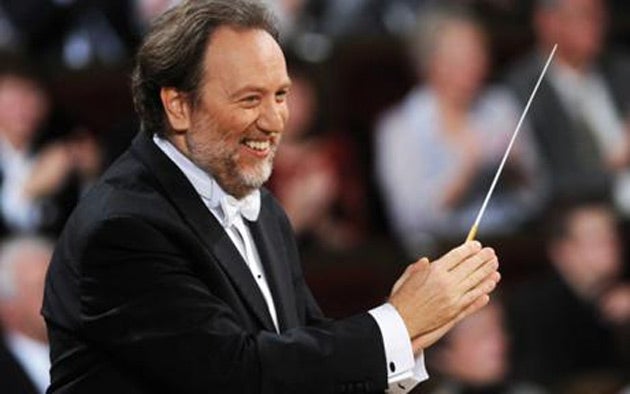Prom 69: Leipzig Gewandhaus Orchestra/ Chailly, Royal Albert Hall, London

Your support helps us to tell the story
From reproductive rights to climate change to Big Tech, The Independent is on the ground when the story is developing. Whether it's investigating the financials of Elon Musk's pro-Trump PAC or producing our latest documentary, 'The A Word', which shines a light on the American women fighting for reproductive rights, we know how important it is to parse out the facts from the messaging.
At such a critical moment in US history, we need reporters on the ground. Your donation allows us to keep sending journalists to speak to both sides of the story.
The Independent is trusted by Americans across the entire political spectrum. And unlike many other quality news outlets, we choose not to lock Americans out of our reporting and analysis with paywalls. We believe quality journalism should be available to everyone, paid for by those who can afford it.
Your support makes all the difference.Not bringing Mendelssohn to the Proms was never an option for the Leipzig Gewandhaus in this the composer’s bicentennial year.
He was, after all, the orchestra’s Music Director during the last 12 years of his life. That historic role now falls to Riccardo Chailly, and his extraordinary achievement to date has been to revitalise the world’s oldest orchestra with an injection of younger players whilst still preserving that innate sense of a long and proud tradition. One of Chailly’s great qualities as a conductor is his ability to reconcile scholarship with spontaneity and keep his audience well and truly in-the-moment.
And so Mendelssohn’s First Piano Concerto in G minor seemed to arrive in the heat of inspiration with bows fired and a sense of composerly authority in the fingers of Saleem Abboud Ashkar. The key to the performance, as indeed the work, was its unassuming brilliance. Nothing here drew attention to itself and yet in the quiet nobility of the slow movement’s lovely melody there were myriad refinements. Its magical return, for instance, was supported by string chords so transparent that hearing was like seeing all the way through to the recumbent bass line. As for the cascading scintillation of the finale, Ashkar, like Mendelssohn, made it all sound so effortless.
To enter then the spare, distracted, desolate world of Mahler’s unfinished 10th Symphony in Deryck Cooke’s performing version was like being fast-forwarded from a rosily romantic comfort zone into a place we barely recognised. But how beautifully, painfully, Chailly traced out that opening Adagio from violas so true to dissonance piled so high as to be literally unbearable. The harmonically wide-spaced uncharted feel of this movement is something that sits perfectly in the far-flung Albert Hall and Chailly seized that sonic advantage with truly ethereal pianissimos.
Of course this entirely “new” Mahler is exposed and exacting and the fractured counterpoint and abortive climaxes of the inner movements – which might be subtitled “dances with death” – brought the occasional accident in the brass. But the stratospheric trumpets still gnawed at our eardrums and come the terrible thud of the bass drum (now with its revised grace-notes) and the blessed consolation of solo flute the final distillation of Mahler’s heartache was rendered unbearably moving with that final upward glissando in the violins seeming to sap the breath from us all. The ensuing silence was the sound of numbness.
Join our commenting forum
Join thought-provoking conversations, follow other Independent readers and see their replies
Comments